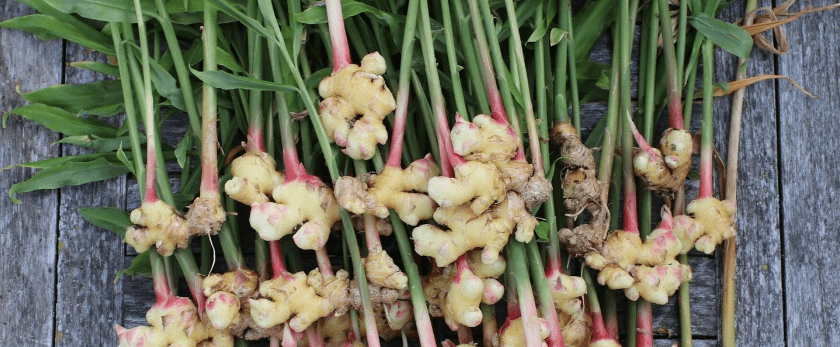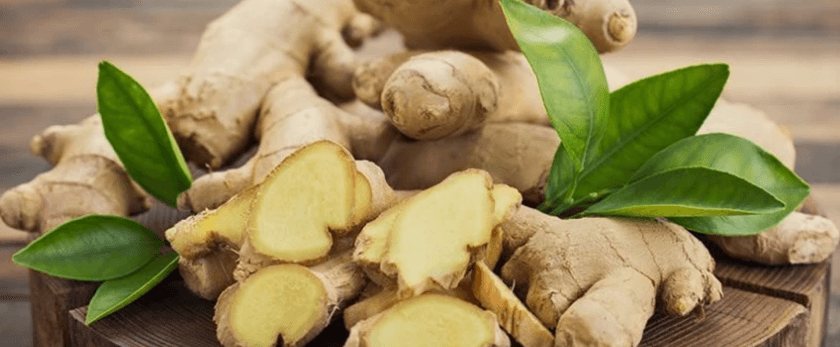Ginger is a versatile and flavorful root that has been used for centuries in cooking, medicine, and even as a natural dye. But did you know that you can easily grow your own ginger at home? Not only is it a fun and rewarding experience, but it also promotes sustainable living by reducing your carbon footprint and supporting local agriculture. In this article, we'll guide you through the process of growing ginger in your own backyard, balcony, or even indoors.
Why Grow Ginger?
Before we dive into the how-to's, let's first understand the benefits of growing ginger. Here are a few reasons why you should consider adding this spice to your garden:
- Fresh and organic ginger: By growing your own ginger, you have control over the quality and freshness of the root. You can ensure that it is free from harmful pesticides and chemicals, making it a healthier option for you and your family.
- Sustainable living: Growing your own ginger reduces your carbon footprint by eliminating the need for transportation and packaging. It also supports local agriculture and reduces the demand for imported ginger.
- Cost-effective: Ginger can be expensive to buy, especially if you use it frequently in your cooking. By growing your own, you can save money in the long run.
- Easy to grow: Ginger is a low-maintenance plant that can thrive in a variety of conditions, making it a perfect choice for beginner gardeners.
- Medicinal properties: Ginger has many health benefits, including anti-inflammatory and antioxidant properties. Having a fresh supply of ginger at home can come in handy for making teas, tinctures, and other natural remedies.
Now that you know the benefits, let's get started on how to grow ginger.
How to Care for Ginger
Watering
Ginger plants prefer consistently moist soil, but not waterlogged. It's essential to keep the soil evenly moist, especially during the growing season. Water your ginger plant once or twice a week, depending on the weather and soil conditions. If you live in a hot and dry climate, you may need to water more frequently.
Light
Ginger plants thrive in partial shade, making them an ideal choice for indoor or balcony gardening. They can also grow in full sun, but they may require more frequent watering. If you're growing ginger indoors, place it near a window that receives indirect sunlight.
Soil
Ginger plants prefer well-draining, loamy soil with a slightly acidic pH level between 5.5 to 6.5. You can create a suitable soil mix by combining equal parts of compost, sand, and potting soil. Avoid using heavy clay or compacted soil, as it can hinder the growth of ginger roots.
Fertilizer
Ginger plants are heavy feeders and require regular fertilization to thrive. You can use a balanced organic fertilizer every two to three weeks during the growing season. Alternatively, you can use a slow-release fertilizer at the beginning of the growing season.
Pruning
Pruning is not necessary for ginger plants, but you can trim off any yellow or dead leaves to promote healthy growth. You can also remove any flower spikes that may appear, as they can divert energy from root growth.
What is the Best Time to Grow Ginger?
Ginger is a tropical plant that thrives in warm and humid conditions. Therefore, the best time to grow ginger is during the warmer months of the year, typically from late spring to early fall. If you live in a colder climate, you can still grow ginger indoors or in a greenhouse.

Common Problems with Growing Ginger
While ginger plants are relatively easy to grow, they can face a few common problems. Here are some issues you may encounter and how to address them:
- Pests: Ginger plants are susceptible to pests such as aphids, mealybugs, and spider mites. You can use organic insecticidal soap or neem oil to control these pests.
- Diseases: Ginger plants can be affected by fungal diseases such as root rot and leaf spot. To prevent these diseases, ensure proper drainage and avoid overwatering. You can also use a fungicide if necessary.
- Yellowing leaves: If your ginger plant's leaves start turning yellow, it may be a sign of overwatering or nutrient deficiency. Adjust your watering schedule and fertilize regularly to address this issue.
Conclusion
Growing ginger is a fun and rewarding experience that promotes sustainable living and supports local agriculture. With the right care and conditions, you can have a fresh supply of organic ginger at your fingertips. Remember to water consistently, provide adequate light and nutrients, and address any common problems that may arise. Happy gardening!










